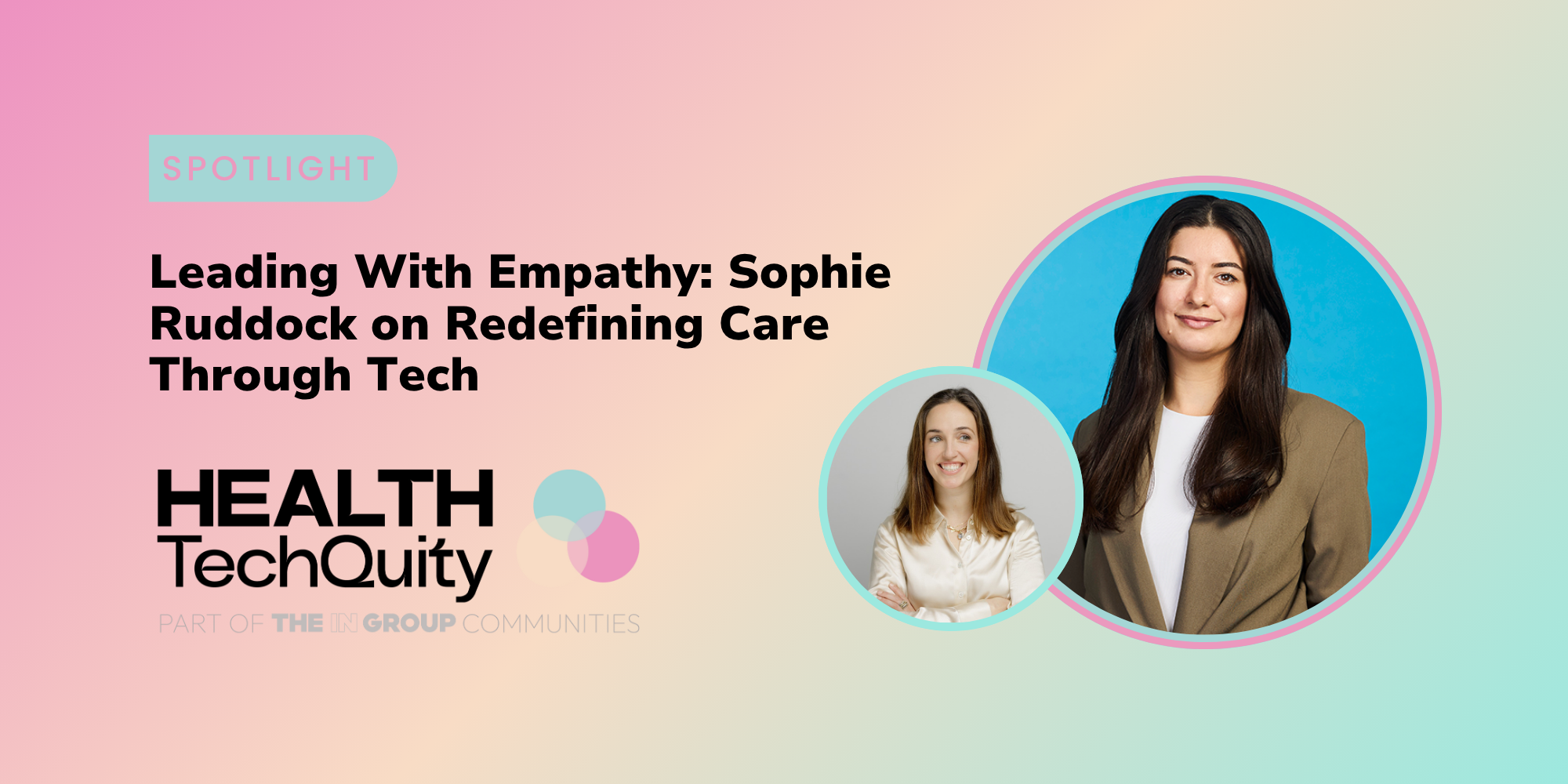As part of the HealthTechQuity Spotlight Series, we sat down with Sophie Ruddock to explore her journey through tech, mission-driven leadership, and her current work transforming grief support as COO at Empathy.
For over 15 years, Sophie has built and scaled mission-driven companies across sectors like education, health and now grief and legacy support. Originally from the UK, her early career in non-profits, health and social care exposed her to how fragmented and reactive systems can be. That experience sparked a drive to pursue systemic change, approaches that work at both policy and grassroots levels to deliver more responsive, people-centred solutions. As COO at Empathy, Sophie now leads efforts to transform how families are supported through one of life’s most difficult and universal experiences: loss.
Sophie's career journey
Her personal mission is closely aligned with her professional path. Sophie is committed to building things that truly matter, especially in areas we tend to avoid talking about, like grief. She believes in scaling services that maintain a strong human core while being operationally resilient. For her, success doesn’t lie in creating perfect systems, but in being present and compassionate at the right time.
Sophie didn’t land in HealthTech through a conventional path. Instead, her journey started in adult social care and public health, where she witnessed the failures of disjointed systems. Over time, she became increasingly interested in how technology and venture capital could create scalable, preventative solutions, not just reactive fixes. That through line seeing where systems fail people and then stepping in to build something better led her to Empathy, where she saw an opportunity to bring innovation and care to the overlooked space of grief support.
When asked whether Empathy is a HealthTech company, Sophie prefers to describe it as building “compassionate technology.” It’s a category-defining space that touches on business, insurance and healthcare, but doesn’t fit neatly into any one box.
One of the best pieces of advice Sophie has received is to be obsessively focused on the user. It’s not enough to be empathetic, true innovation comes from relentless curiosity about what users need, even if they can’t yet articulate it. This user-centric approach is especially vital when working in sensitive areas like loss, where emotional nuance is key.
Key challenges in HealthTech
The biggest challenge facing HealthTech today, in Sophie’s view, is trust. As technology moves into deeply personal domains like health, family and mortality, the question becomes: how do we build systems that are not only innovative but responsible? Companies that succeed will be those that combine cutting-edge technology with strong ethical foundations and human-centred design.
Technology, Sophie emphasises, should not replace human care but amplify it. Her work has always focused on enabling care teams whether in education, healthcare or grief support, to do what they do best. Technology is the multiplier, but human connection is still the point.
Among the companies Sophie admires is Cityblock Health, which has reimagined care delivery in underserved communities by blending technology with behavioural and clinical support. She sees it as a model for designing systems that reflect real life rather than idealised scenarios.
Final thoughts
Looking ahead, Sophie envisions a future where care especially around grief becomes more proactive, personalised, and integrated across life stages. She hopes for a compassionate tech ecosystem that breaks down taboos and supports people through moments they didn’t want but must face. If loss can be transformed from a sudden cliff into a more manageable slope, we’ll have made meaningful progress.
Supporting an ageing population will require systems that see people as whole individuals rather than isolated use cases. Compassion, integration, and adaptability will be essential. Sophie’s vision is of a world where technology doesn’t require everyone to meet it on its terms, but instead adapts to meet people where they are.
To close, she poses a question to fellow leaders: what is one thing you’ve had to unlearn as a leader that ultimately made you better at building something that serves others?

